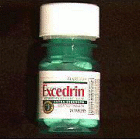
Hepatotoxicity from drugs is sometimes difficult to diagnose because the signs and symptoms vary so much from one drug to the next and symptoms often resemble other commonly diagnosed illnesses. This can present a problem for health professionals because drug induced liver damage is the number one reason that approved drugs are pulled from the market. Nurses can aid in the early detection of hepatotoxicity by knowing some of the signs and by being proactive in patient diagnosis of the drug intake in order to discontinue the drug as soon as possible. Discontinuing the drug can reduce the severity of hepatotoxicity.
The signs and symptoms of drug induced hepatotoxicity can be as mild as a change in liver function tests presenting no viable symptoms in the patient, to full blown hepatotoxicity and liver failure. The earlier the problem is diagnosed, the greater chance of survival for the patient. There is usually an increase in the liver function tests when hepatotoxicity is present. The problem with this is that many drugs on the market increase the AST and ALT levels in patients, knowing when the increase is substantial enough to have to discontinue the drug is essential. A drug should be discontinued if the ALT levels are elevated more than two times the normal limit while the AST levels remain within normal limits or slightly elevated. An increase in bilirubin levels will follow the increase in ALT levels as the condition worsens.
Many drugs present the symptoms of rash, fever and an increase in eosinophils in the blood when ALT levels are increased (this happens in about 30% of cases). The symptoms usually occur within 4 weeks of starting a drug and can seize 8 weeks out.
Although a difference of signs and symptoms can vary so much from one drug to the next, and one patient to the next some common signs associated with drug induced hepatotoxicity include:
Non-specific symptoms-- ones that may not directly pinpoint the problem.
- fatigue
- weakness
- vague abdominal pain
- loss of appetite
Signs and symptoms specific for hepatotoxicity--
- Jaundice
- Itching
- Easily bruising
When the liver is severely damaged cirrhosis can occur. Symptoms of cirrhosis include--
- Edema (often times in the legs)
- Mental confusion
- Kidney failure
- Gastrointestinal bleeding
- Vulnerability to bacteria infections
Some drugs may cause hepatitis (inflammation of liver cells that can result in the death of the cells. Symptoms of hepatitis include-
- Loss of appetite
- Nausea
- Vomiting
- Fever
- Weakness
- Fatigue
- Abdominal pain
Hepatotoxicity caused by the intake of commonly used drugs can be difficult to diagnose due to the vast number of symptoms the patient may experience. That is why it is extremely important for a nurse to get a thorough medical history report from every patient outlining the drugs, herbs, vitamins and over the counter medications that they are consuming. The treatment for each different hepatotoxicity case can vary as well but the first and best solution is to discontinue the drug that is causing the liver damage. Often times this will eliminate the symptoms but there are times where the damage is too extensive or that an antidote to a particular drug may be administered. Treatment is then varied on an individual basis.
Sources:





